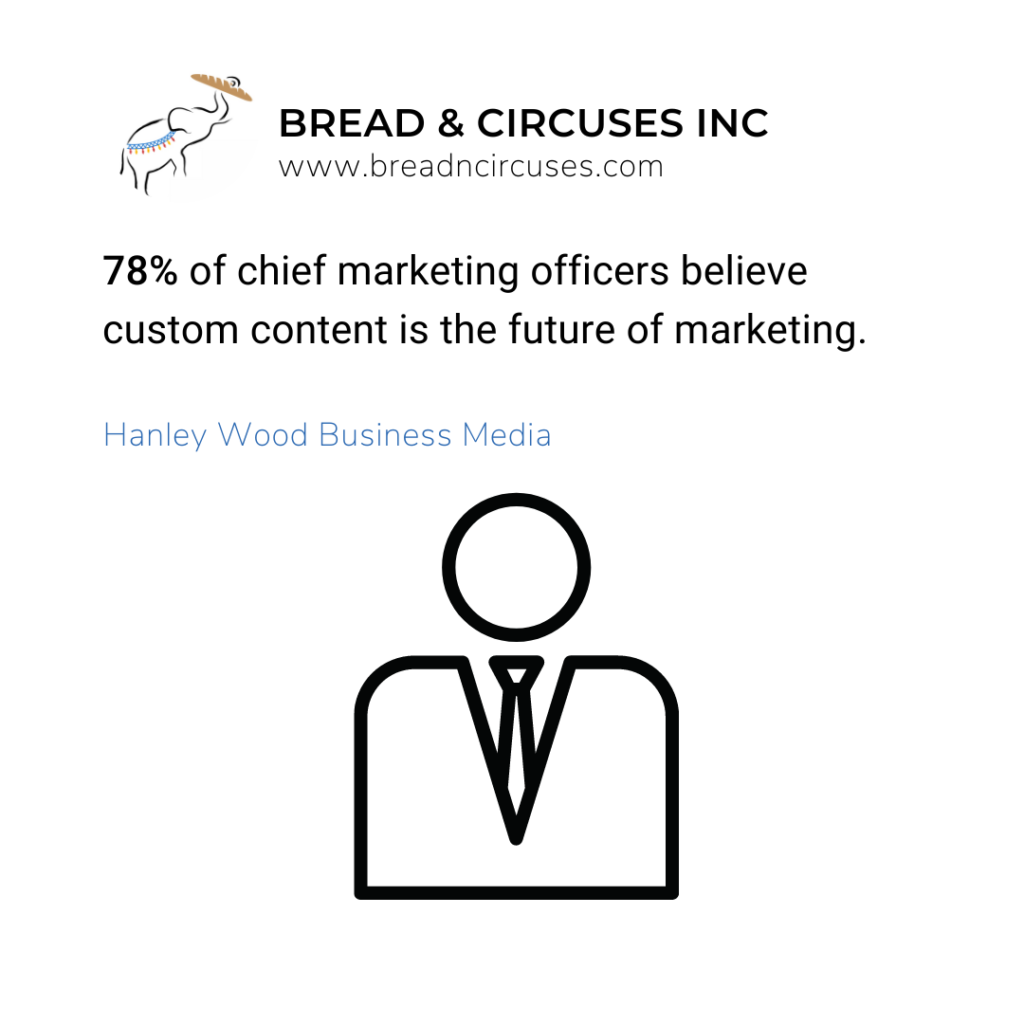Last Updated on January 29, 2025 by Bread and Circuses Team
The famous expression “Content is King” has never been more true. Smart businesses that historically have stayed in their lane and focused on building a great product have come to realize that their product now encompasses the entirety of the experience that they offer customers. The very best have realized that content is a crucial part of that experience– and that every company needs to start becoming a media company.
Content marketing is becoming an ever more important part of B2B and B2C companies’ strategies to create unique and helpful experiences, and the data to support a greater focus on content marketing is everywhere.
Here we present a few of the most compelling content marketing stats that highlight some of the ways great content makes a big difference for businesses–including potentially yours.
Customer Expectations
Customer expectations have never been greater. With the rise of digital technologies and the increased accessibility of information, customers now have more options than ever before, and are more informed and empowered than at any other time in history.
This means that businesses need to go above and beyond to meet the demands of their customers. According to a study by Salesforce, 80% of consumers now consider the experience a company provides to be as important as the product itself. Today’s consumers expect seamless experiences across all channels, whether they’re shopping online or in-store. They want fast and reliable service, convenient payment options, and timely updates on their orders.
It also means they expect the brands they buy from to communicate with them in a variety of ways across a variety of channels and at all stages of their customer journey.
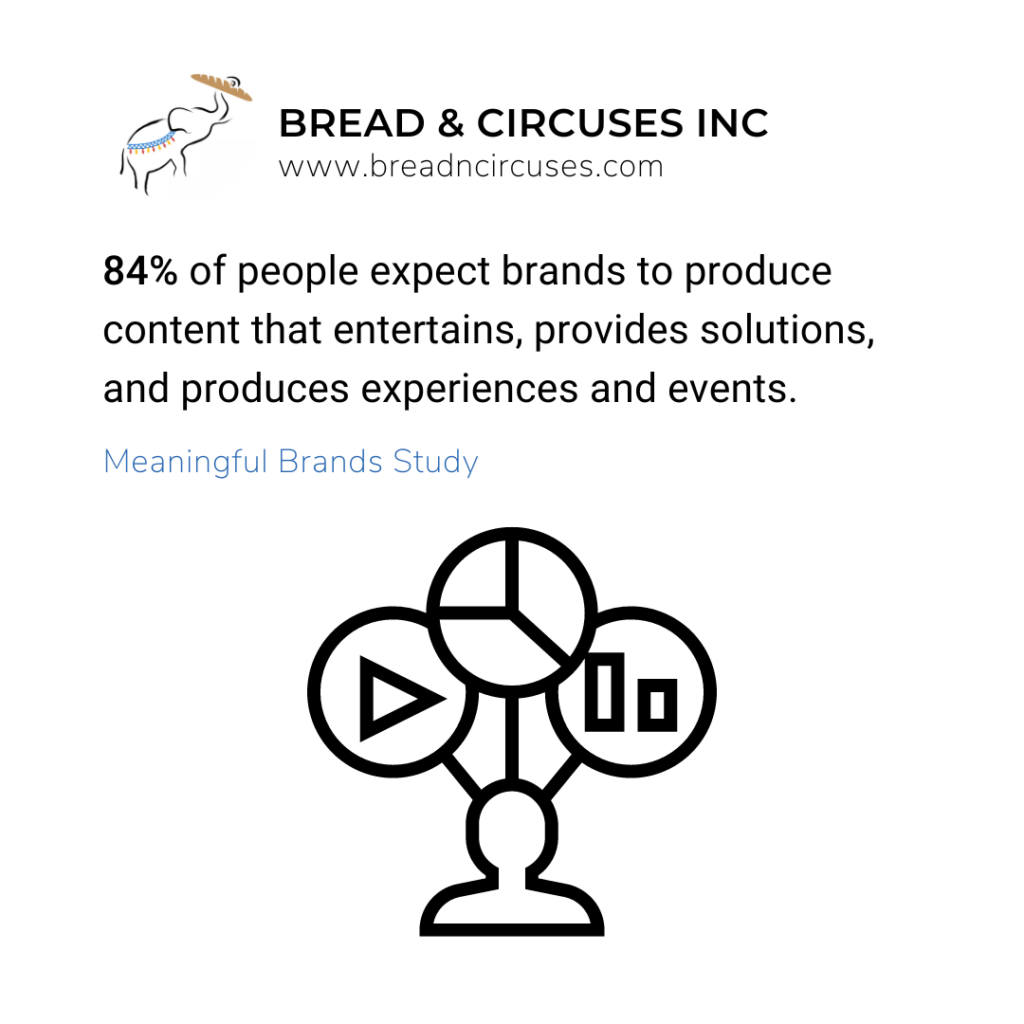
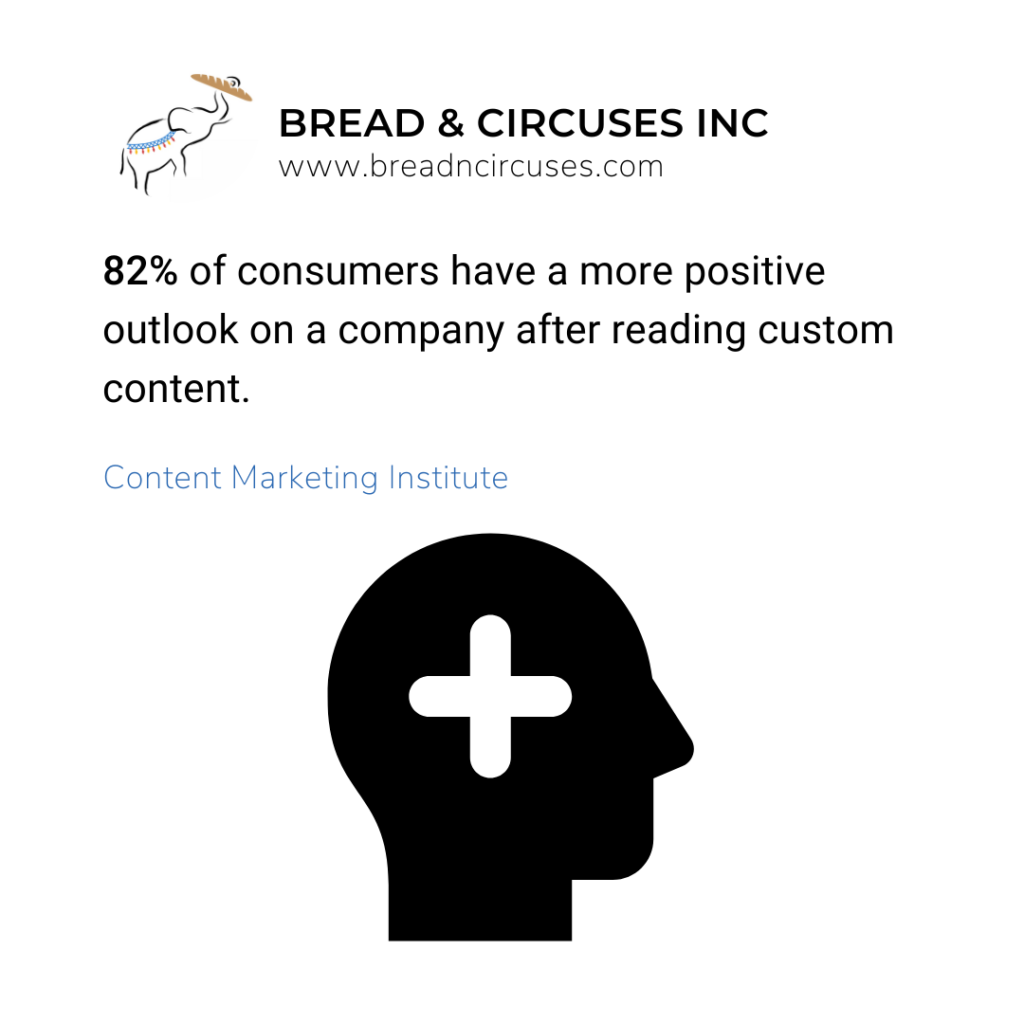
CONTENT LOWERS the Cost of User ACQUISITION & Increases ROI
Content marketing is a highly effective strategy for reducing customer acquisition costs and increasing ROI. By creating and sharing valuable and relevant content, your business can attract and engage potential customers, build brand awareness, and establish itself as an industry thought leader.
Compared to traditional marketing methods like paid advertising, content marketing is often more cost-effective, as it requires little to no investment in media placements or ad space. Instead, businesses can use their website, social media channels, and email lists to distribute content and reach a wider audience.
In addition to its cost-effectiveness, content marketing can also deliver a higher return on investment. By creating content that resonates with your target audience, your business can increase its chances of converting leads into paying customers. Moreover, because content marketing is often focused on building long-term customer relationships, it can help businesses generate recurring revenue and reduce churn rates.
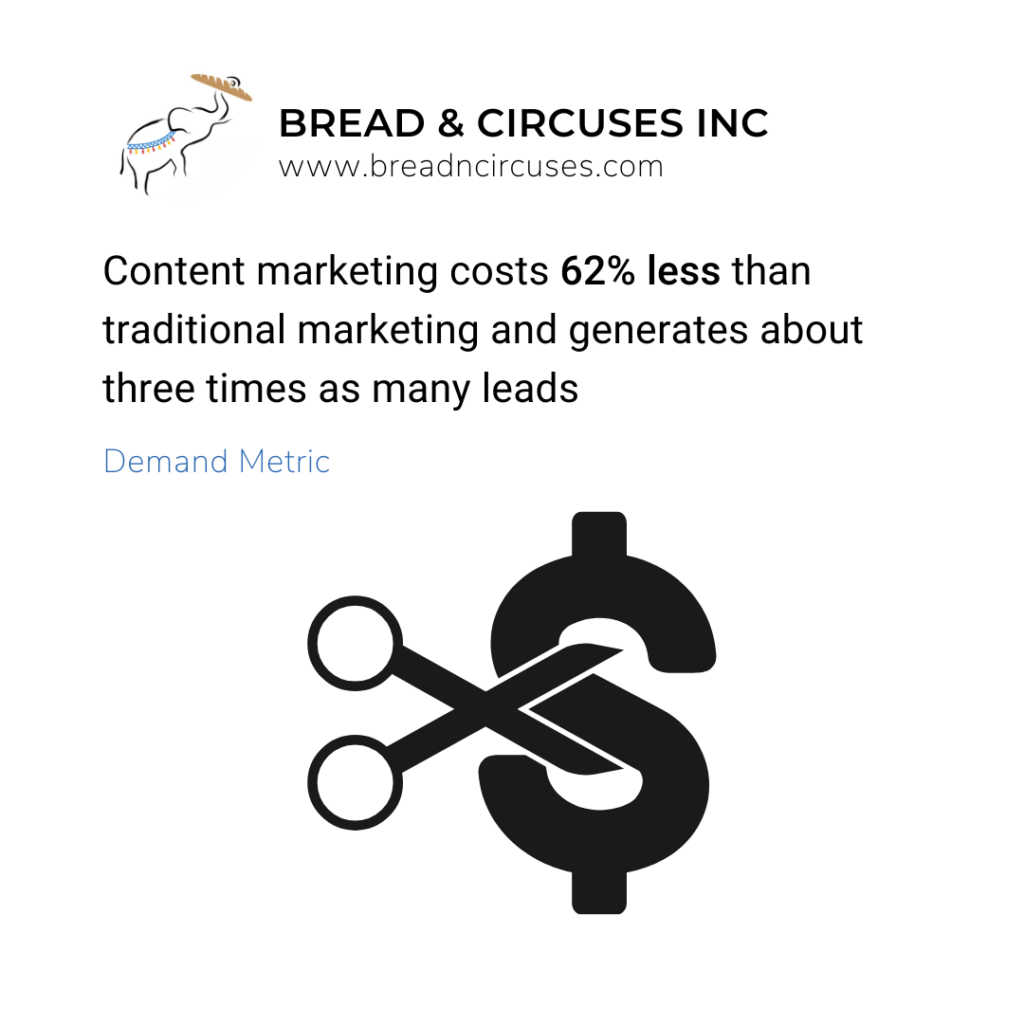
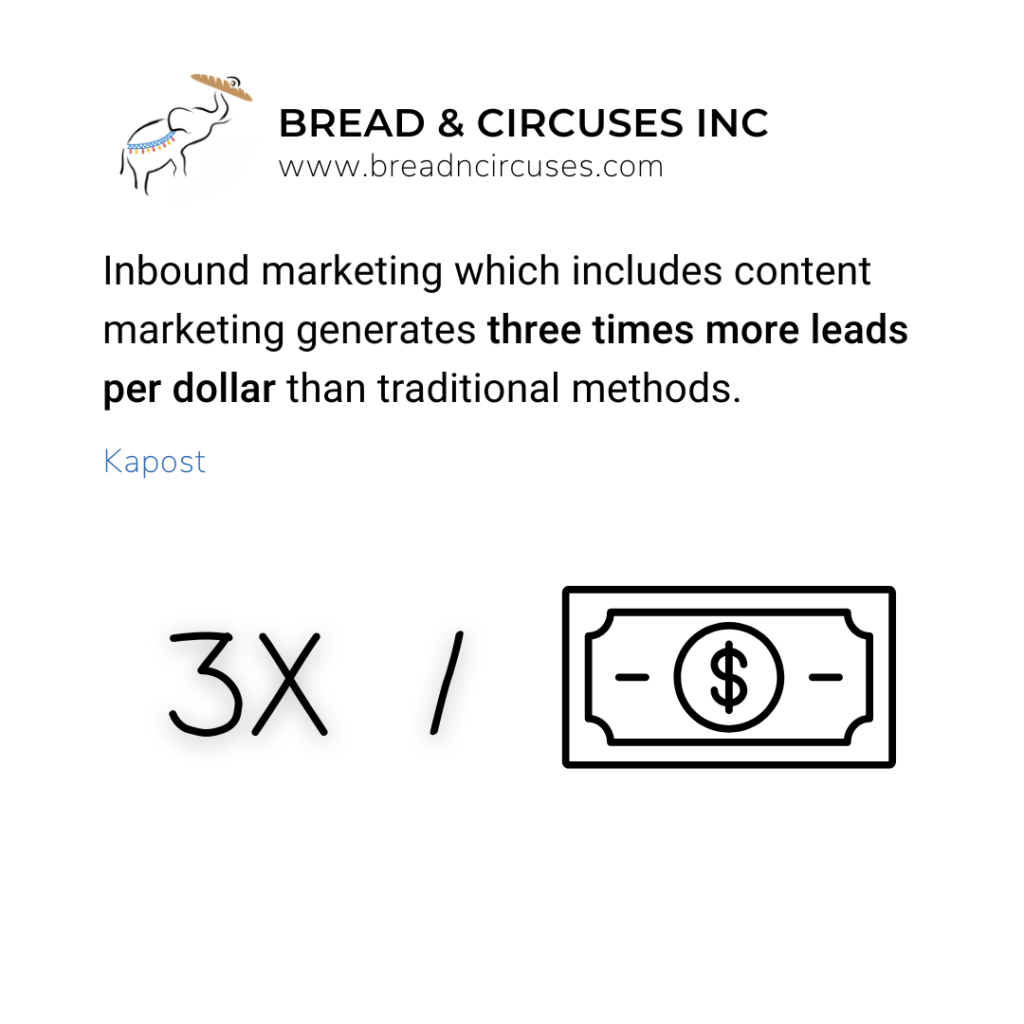
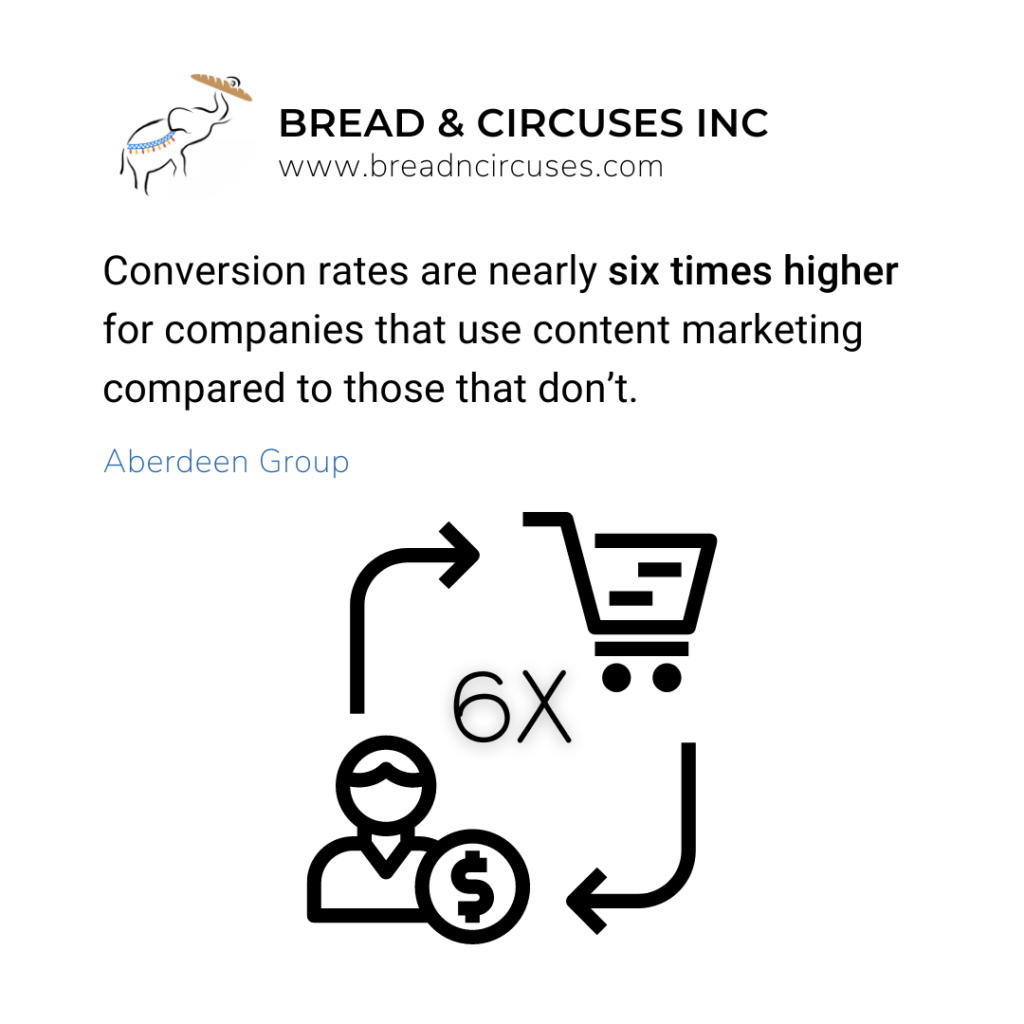
Blog Content Drives Business Results
Blog posts and articles are an important part of any defined content strategy. Not only does blog content drive organic traffic to a business’s website and increase its visibility and reach–It can also position a business as a thought leader in its industry, building trust and credibility with potential customers.
Beyond this–a business’s blog content can educate and inform readers about a business’s products or services, leading to increased sales and customer retention as well as generate social media shares and backlinks, improving a business’s search engine optimization and driving even more traffic to its website.

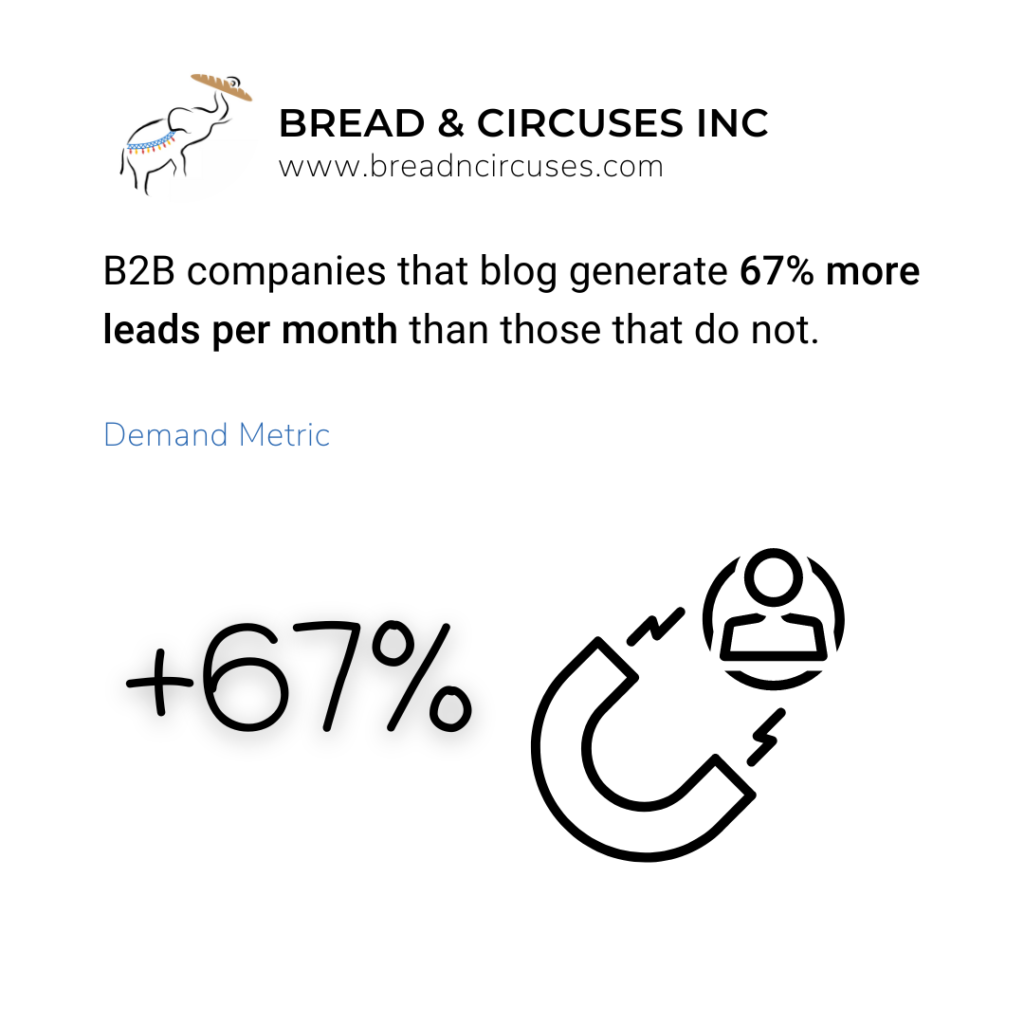
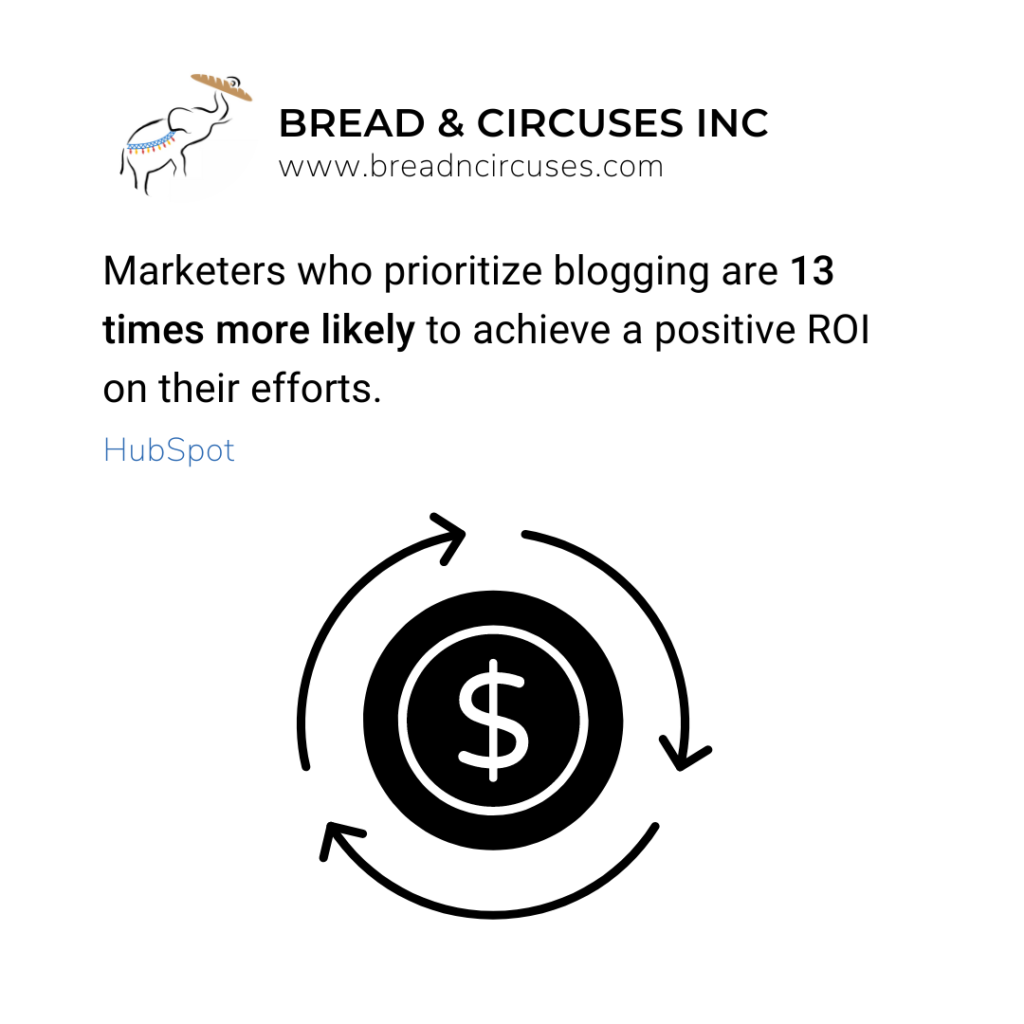
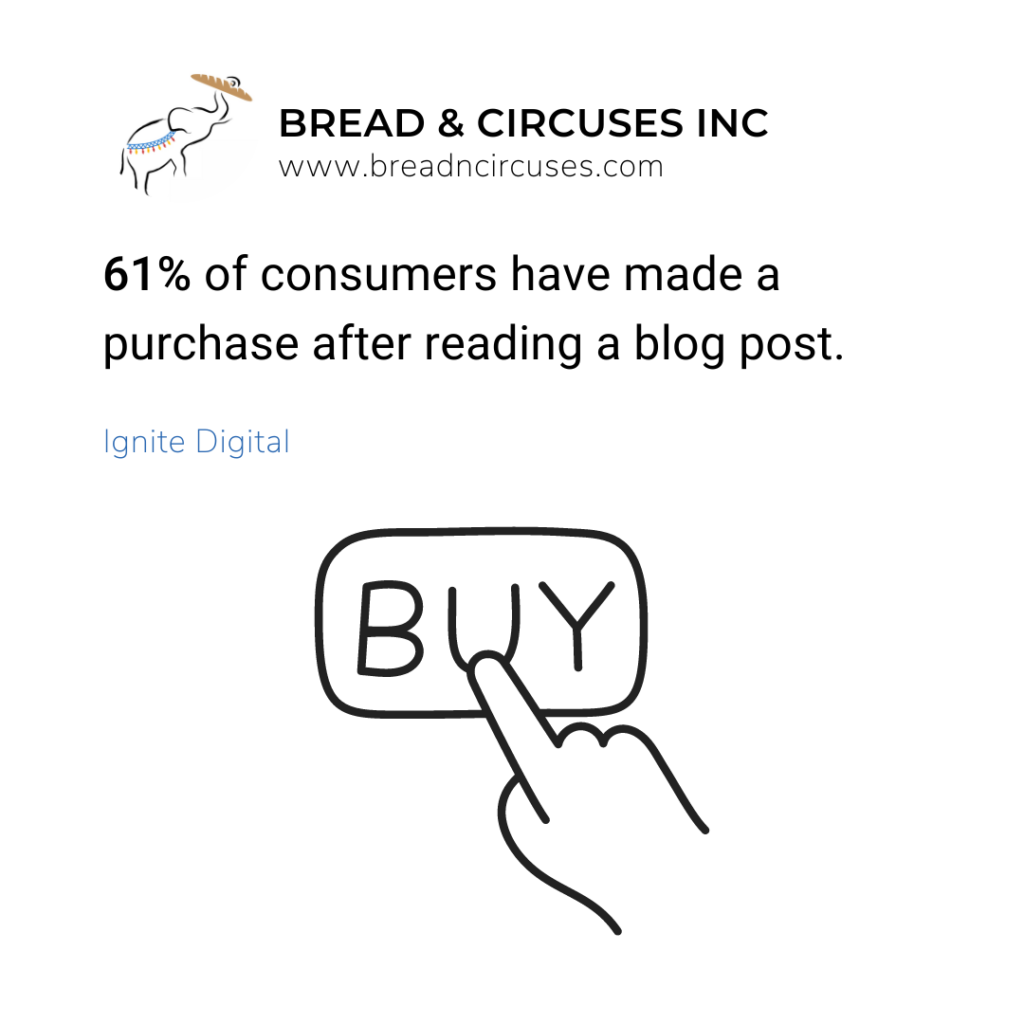
Content Personalization Builds Relationships
Personalization is all about tailoring content to the specific needs and preferences of a target audience. By creating personalized content, businesses can improve engagement and build stronger relationships with potential and existing customers.
Personalized content can take many forms, such as customized email campaigns, personalized product recommendations, or personalized landing pages. By leveraging data and analytics to understand their audience’s interests and behaviours, businesses can deliver more relevant and valuable content that resonates with their target audience. Ultimately, personalization in content marketing can help businesses increase customer loyalty, drive sales, and differentiate themselves from competitors.
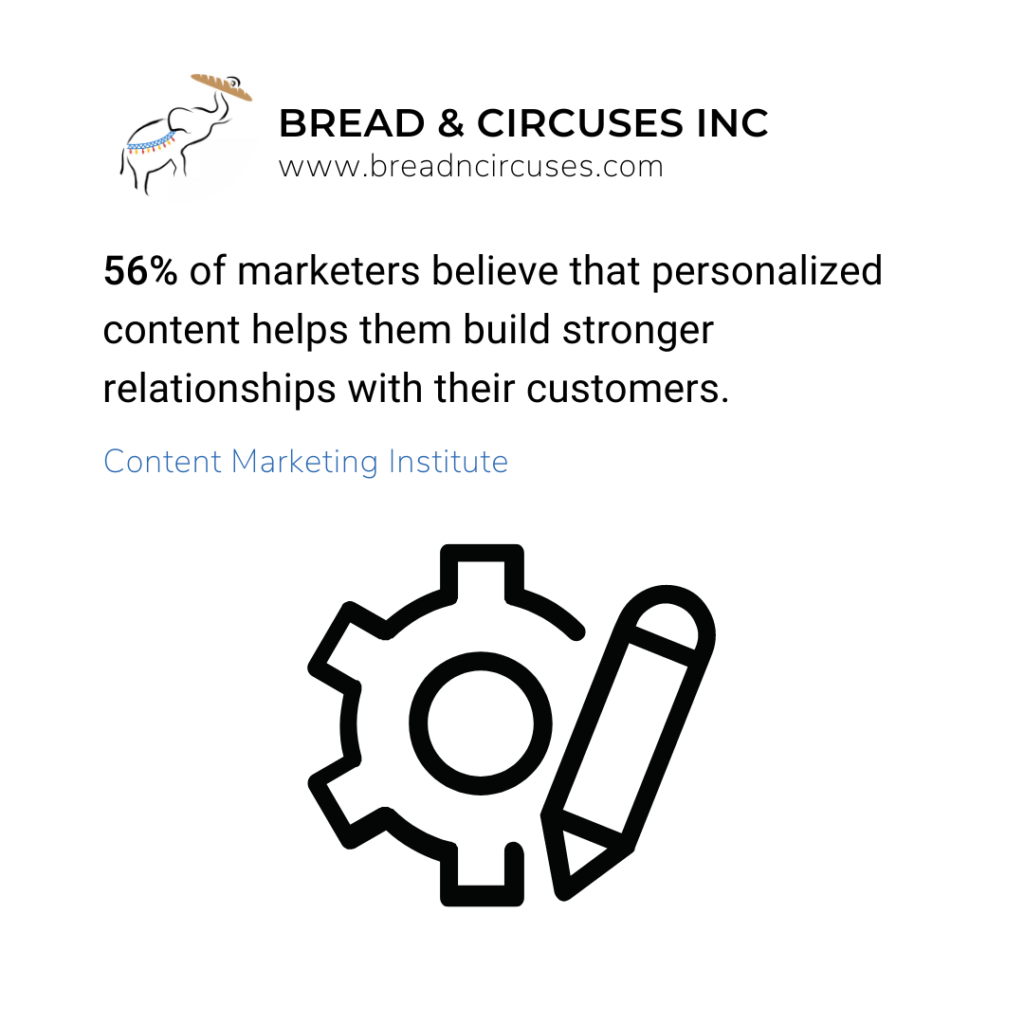
Content Empowers Sales Teams
Content marketing empowers sales teams by providing them with the tools and resources they need to communicate effectively with potential customers. By creating high-quality content that addresses common pain points and objections, businesses can equip their sales teams with valuable information that can help them close deals and build stronger relationships with customers. Content marketing can also help sales teams establish themselves as trusted advisors, positioning them as experts in their field and building credibility with potential customers. By working together with the marketing team to develop and distribute content, sales teams can leverage the power of content marketing to drive revenue and achieve their sales goals.
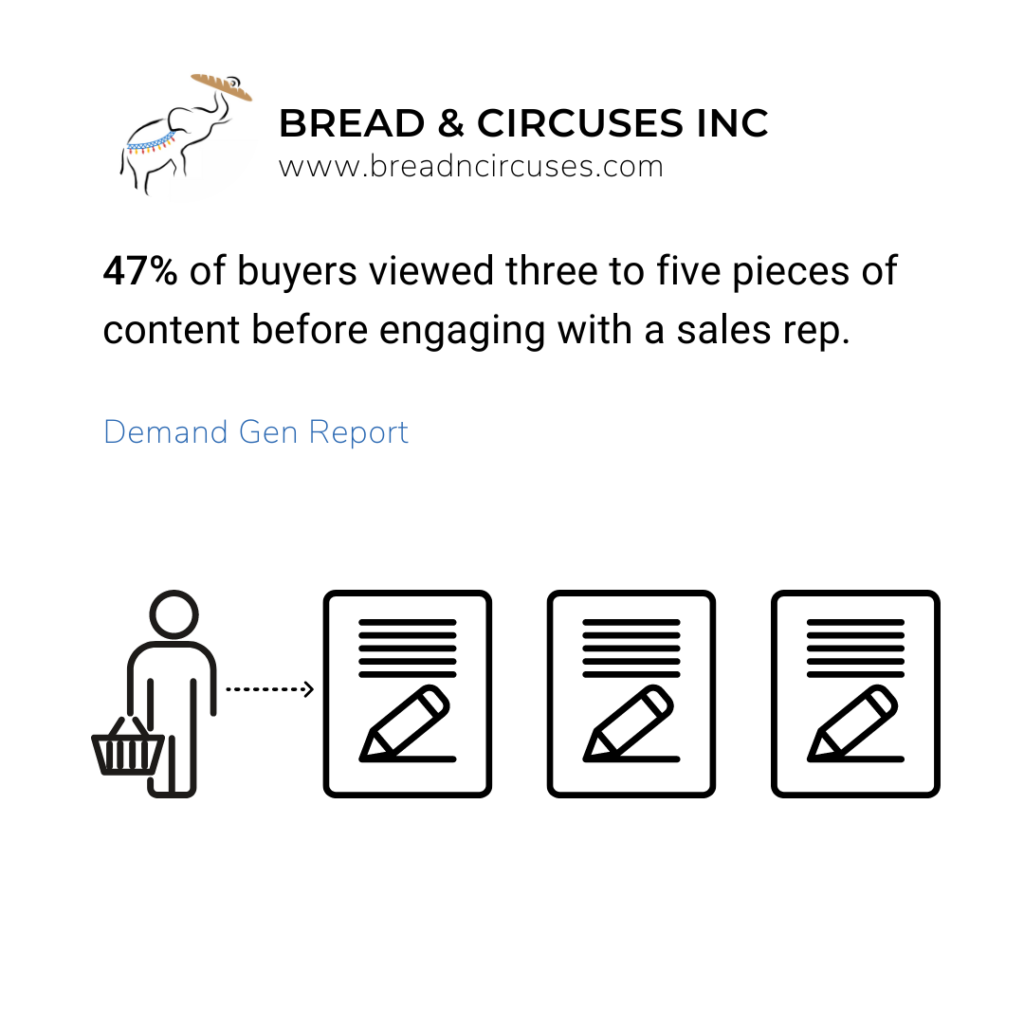
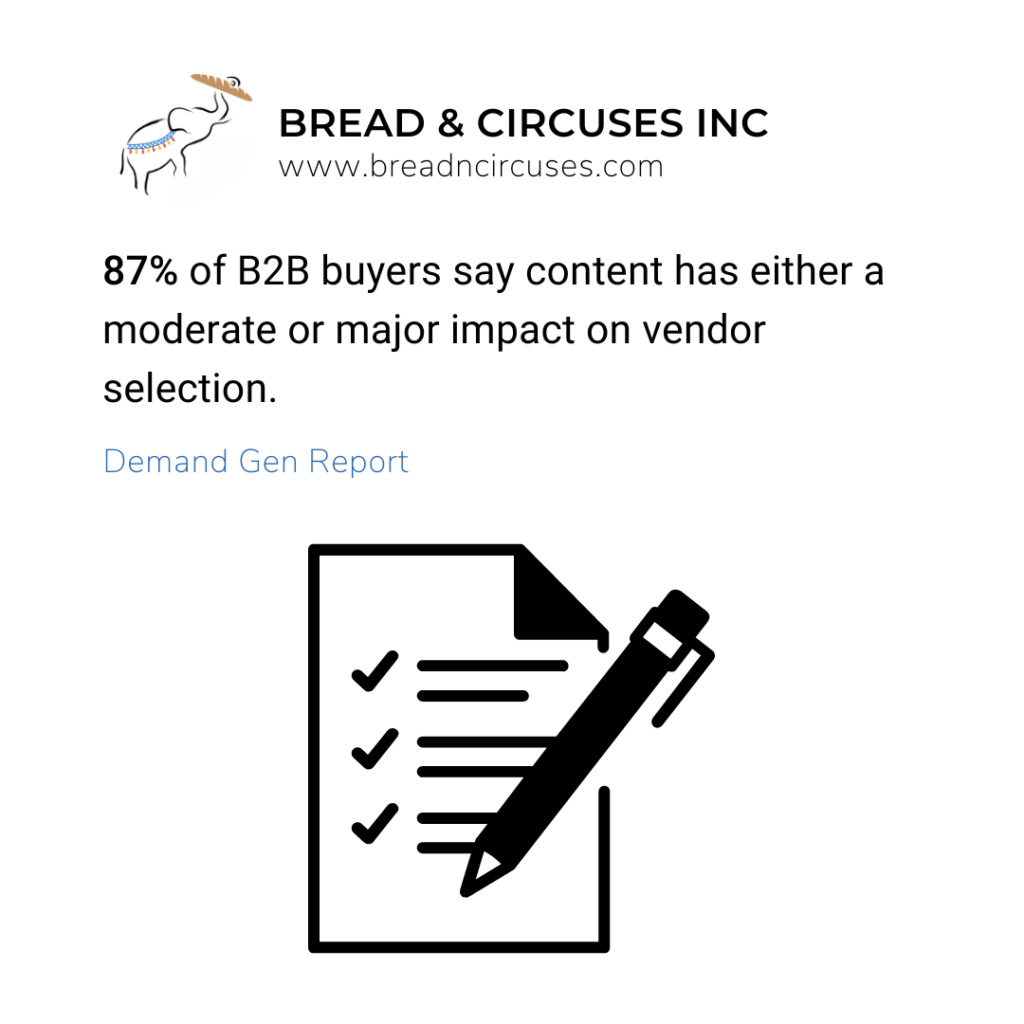
Consumers Prefer Articles Over ads
Consumers prefer branded content to ads because it is often more engaging, informative, and entertaining. Branded content is typically designed to provide value to the consumer, whether that’s through educational information, entertaining storytelling, or useful product demonstrations. Unlike traditional ads, which are often interruptive and pushy, branded content is designed to fit seamlessly into the consumer’s online experience, making it more enjoyable and less obtrusive. Additionally, branded content can help build a deeper emotional connection with the consumer, as it is often more relatable and authentic than traditional advertising. Overall, consumers are more likely to engage with and share branded content, making it a more effective tool for building brand awareness and driving customer engagement.
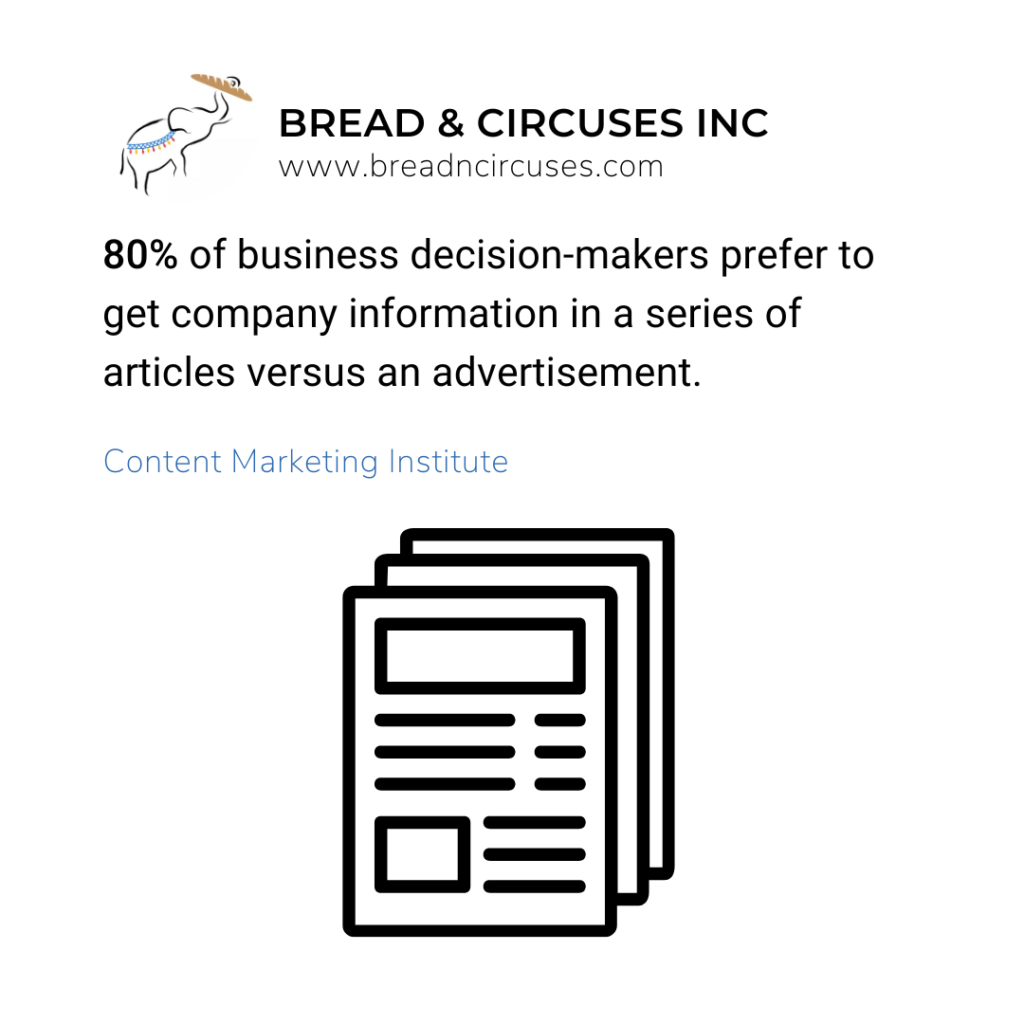
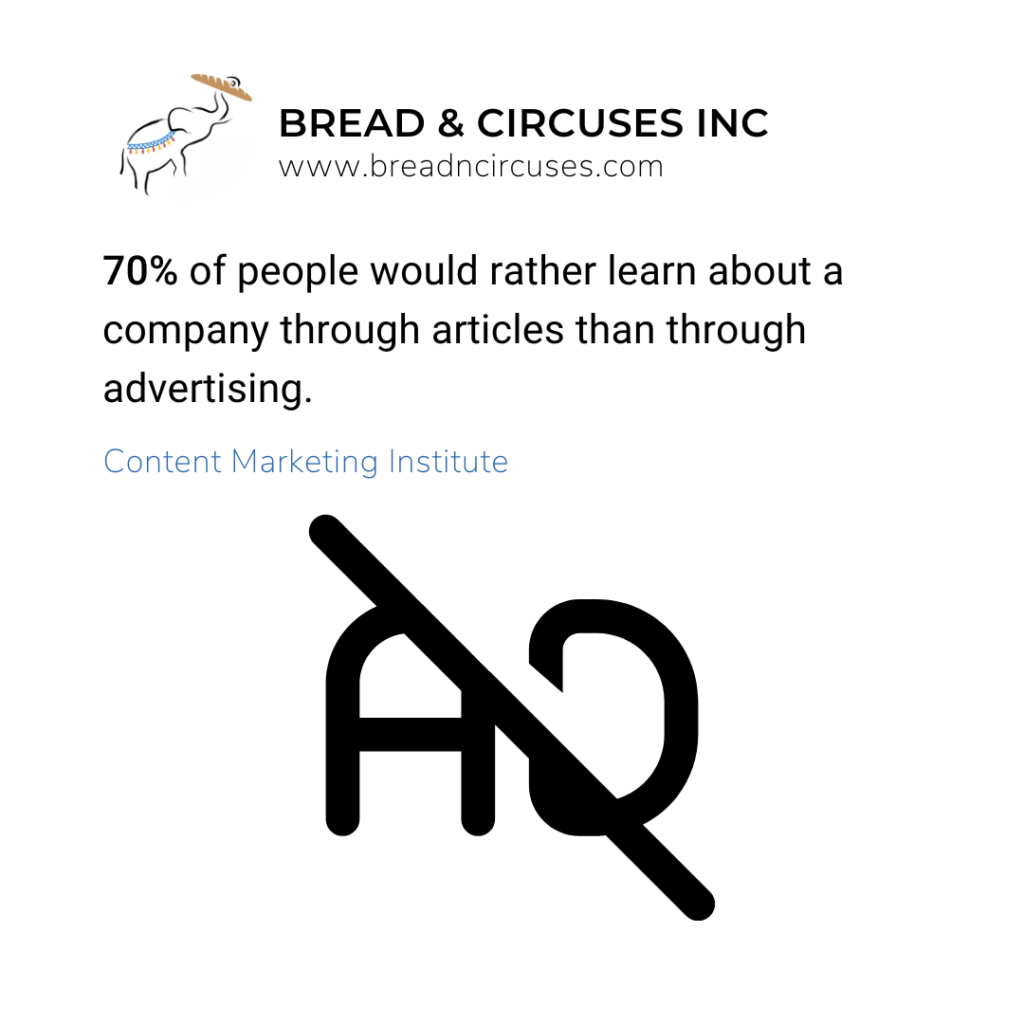
Content Leads Directly to Sales
Content can lead directly to sales by providing potential customers with valuable information and insights that help them make informed purchase decisions. By creating content that addresses common pain points, objections, and questions that potential customers have, businesses can establish themselves as trusted advisors and experts in their field.
This can build trust and credibility with potential customers, ultimately leading them to choose a business’s products or services over those of competitors. Additionally, content can include calls to action and links to product pages, making it easy for potential customers to learn more and make a purchase.
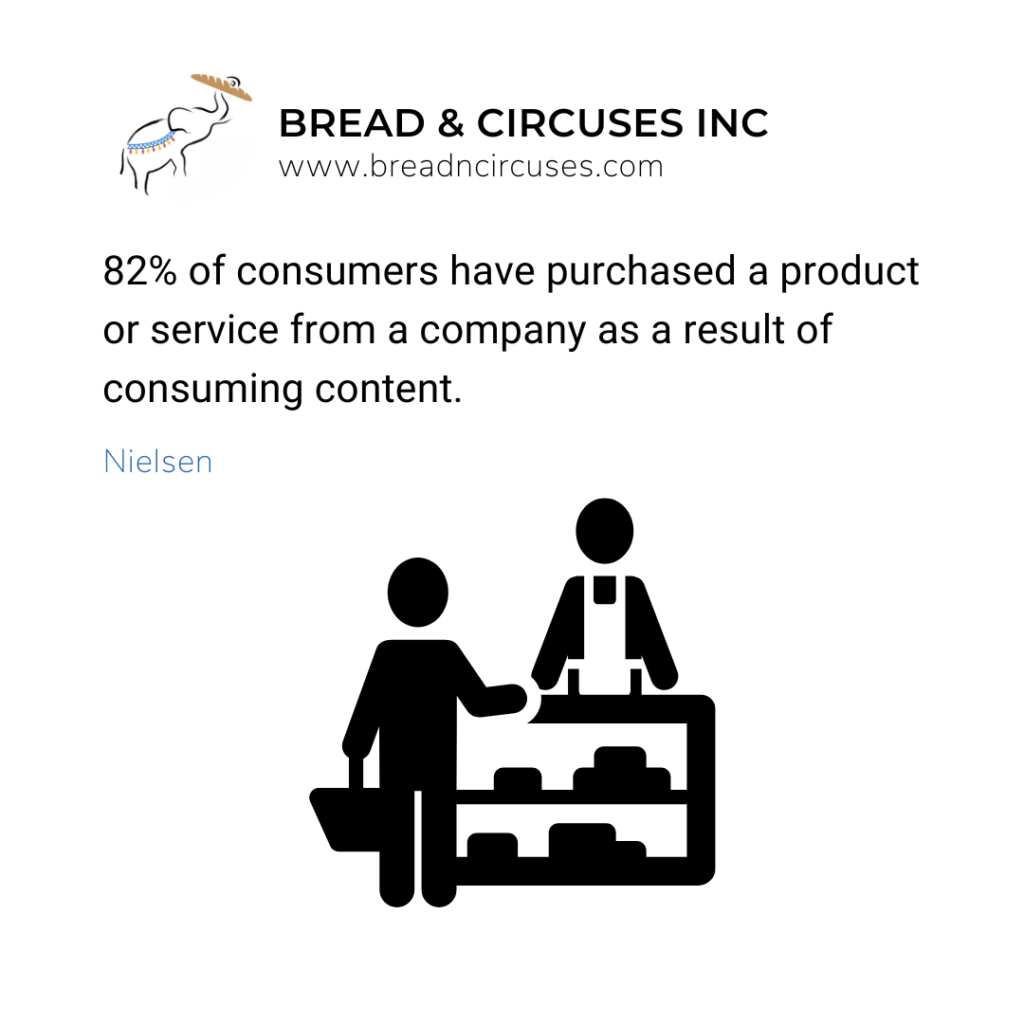
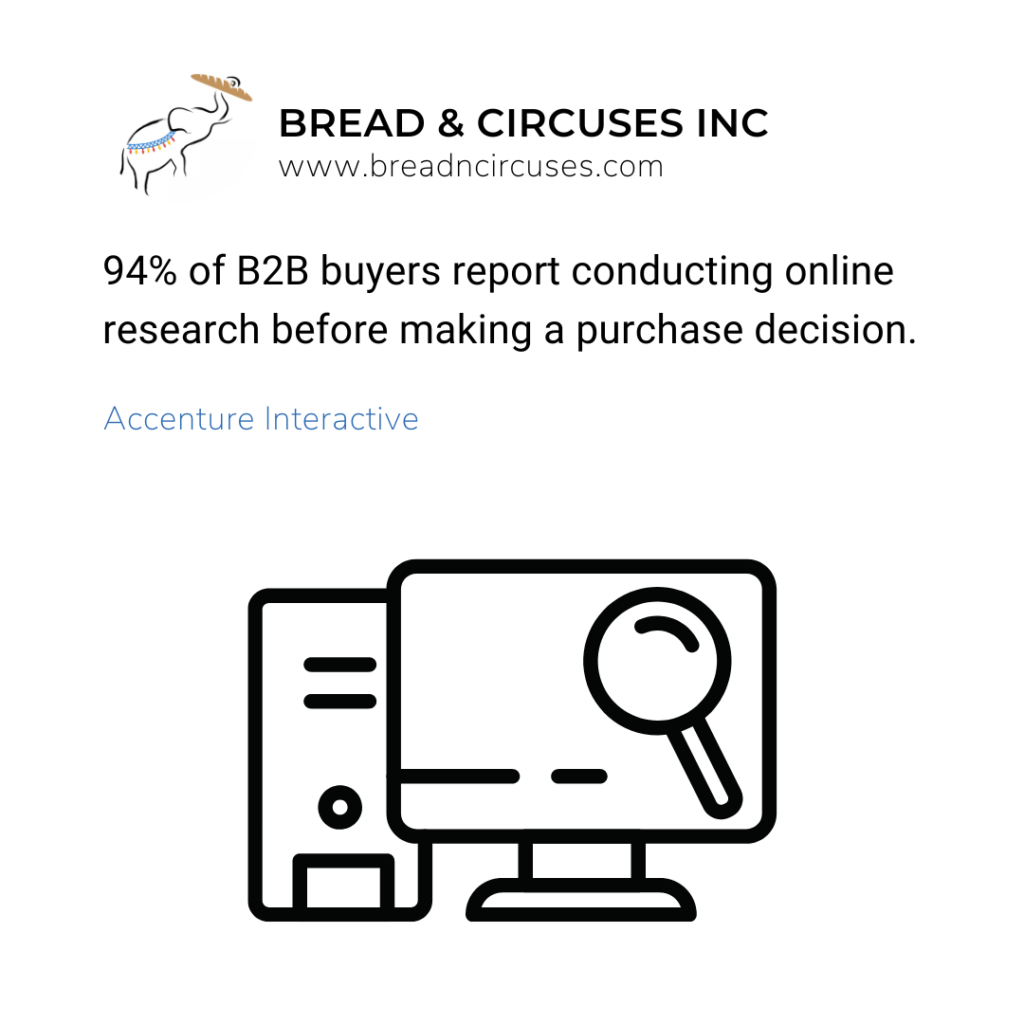
Newsletters are a Popular Format for Content Marketers
Email–and the newsletter–are definitely not dead. Newsletters are a popular format for content marketers because they allow businesses to engage with their audience on a regular basis, delivering high-quality content directly to their inbox. Newsletters can take many forms, such as weekly roundups, product updates, or curated content collections. By providing valuable information and insights to subscribers, businesses can build stronger relationships with their audience, increase brand awareness, and drive traffic to their website.
Newsletters can also be highly customizable, allowing businesses to tailor content to the specific interests and preferences of their subscribers and segment different groups for custom newsletters or newsletter campaigns.
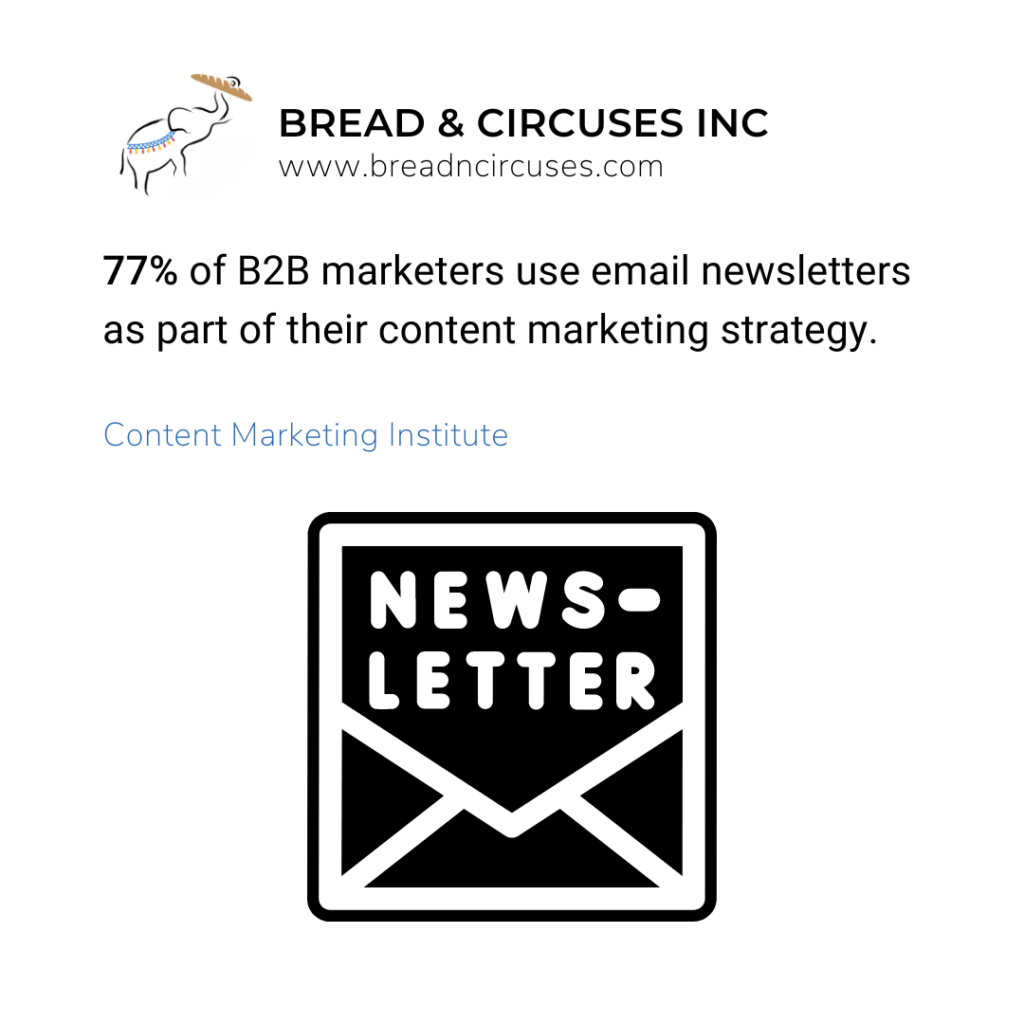
Marketing Leaders Believe That Content Marketing is the Future
Marketing leaders think content marketing is the future as it offers a cost-effective and highly targeted way to engage with customers and drive business results. Whether marketing executives invest in building their own content marketing teams or enlist the help of fractional content marketing agencies, it’s clear that content is currently top-of-mind as a lever for growth.
As consumers increasingly tune out traditional advertising methods, businesses are turning to content marketing to provide valuable information and insights that resonate with their target audience. Content marketing can help businesses build brand awareness, establish thought leadership, and nurture relationships with potential and existing customers. Content marketing is also highly measurable, allowing businesses to track the performance of their content and optimize their strategy over time–a feature which appeals to marketing executives and other members of the C-suite.
